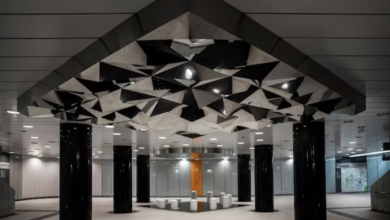How Regular Air Conditioner Maintenance Extends System Lifespan

Introduction
Your air conditioner is one of the most important systems in your home—especially during the hottest months of the year. While AC units are designed to withstand constant use, they are not indestructible. Like any mechanical system, they require routine care to continue running efficiently and reliably. Regular AC maintenance is essential not just for comfort but for maximizing your system’s lifespan, reducing repair costs, and improving energy efficiency.
Many homeowners don’t realize that the majority of AC failures occur due to lack of maintenance. Dust buildup, clogged filters, loose electrical components, and low refrigerant levels all take a toll on your system over time. This comprehensive guide explains how routine AC maintenance helps extend your unit’s lifespan, prevents breakdowns, and keeps your cooling system in top condition year-round.
Why AC Maintenance Is Essential
Before diving into lifespan benefits, it’s important to understand why maintenance is necessary in the first place.
Your AC Is a Complex Machine
Your air conditioner includes:
- A compressor
- Evaporator and condenser coils
- Blower motors
- Fans
- Refrigerant lines
- Electrical wiring
- Thermostatic controls
These parts work together to cool your home. If even one component fails or becomes strained, the entire system suffers.
Neglect Leads to System Strain
When dirt, debris, or malfunctioning parts interfere with normal operation, your AC must work harder. This added stress shortens the lifespan of components like motors, capacitors, and compressors.
Routine maintenance keeps everything running smoothly and prevents small problems from escalating into system-wide failures.
See also: Smart Home Ideas to Make Everyday Living Easier and More Comfortable
1. Reduces Wear and Tear on Components
Just like a car, your AC experiences daily wear and tear. Over time, components weaken or become dirty, causing stress on the system.
How Maintenance Helps
- Lubricates moving parts
- Tightens loose components
- Cleans coils and internal surfaces
- Reduces friction and overheating
- Ensures balanced airflow
When parts operate smoothly, they last longer and perform better. A well-maintained AC system doesn’t have to work as hard—and that reduced strain leads to a significantly longer lifespan.
2. Improves System Efficiency
Efficiency directly impacts the longevity of your air conditioner. An inefficient system requires more energy, runs longer cycles, and experiences greater stress.
Factors That Reduce Efficiency
- Dirty air filters
- Clogged coils
- Low refrigerant levels
- Poor airflow
- Fan issues
How Maintenance Improves Efficiency
During a maintenance visit, technicians:
- Clean evaporator and condenser coils
- Replace or wash filters
- Check refrigerant pressure
- Improve airflow
- Inspect fans and motors
With efficient operation, components don’t have to overwork, lowering the risk of breakdowns and extending equipment life.
3. Prevents Costly Breakdowns
Most major AC repairs begin as small issues that go unnoticed. By the time the system fails, the damage may be significant and expensive.
Common Preventable Issues
- Refrigerant leaks
- Electrical damage
- Overheated motors
- Frozen coils
- Clogged drain lines
How Maintenance Prevents Breakdowns
Technicians catch problems early during inspections. For example:
- A minor refrigerant leak is repaired before compressor damage occurs
- A failing capacitor is replaced before the blower motor burns out
- Dirty coils are cleaned before they cause overheating
Preventative care turns unexpected emergencies into manageable, affordable fixes.
4. Extends the Life of the Compressor
The compressor is the heart of your air conditioner—and the most expensive part to replace. When the compressor fails, many homeowners choose to replace the entire system.
Why Maintenance Protects the Compressor
The compressor can fail due to:
- Low refrigerant
- Overheating
- Excessive dirt buildup
- Electrical issues
- Blocked airflow
Maintenance tasks like checking refrigerant levels, cleaning coils, and inspecting the electrical system directly protect the compressor from premature wear.
A regularly maintained AC can last 15–20 years, while a neglected one may only last 7–10 years.
5. Ensures Proper Refrigerant Levels
Refrigerant is essential for absorbing heat. Without proper levels, the system cannot cool efficiently.
Low Refrigerant Creates System Stress
When refrigerant is low:
- The compressor works harder
- Coils freeze
- Cooling efficiency drops
- Electrical components strain
How Maintenance Helps
Technicians:
- Check for proper refrigerant charge
- Inspect for leaks
- Repair leaks when found
- Recharge the system per manufacturer standards
Maintaining refrigerant levels keeps your AC operating within safe parameters, preventing damage and extending lifespan.
6. Keeps Coils Clean for Better Heat Transfer
The evaporator and condenser coils play a crucial role in absorbing and releasing heat.
Dirty Coils Harm System Lifespan
When dirt, dust, or debris builds up:
- Heat transfer slows
- The compressor must work harder
- Cooling cycles lengthen
- Energy efficiency drops
Maintenance Includes Thorough Coil Cleaning
Technicians clean both indoor and outdoor coils to ensure:
- Improved airflow
- Faster heat transfer
- Reduced system strain
- Better temperature regulation
Clean coils are essential for long-lasting AC performance.
7. Improves Airflow Throughout the System
Restricted airflow forces your AC to work harder, which reduces its overall lifespan.
Causes of Poor Airflow
- Clogged filters
- Dusty vents
- Blocked ductwork
- Damaged blower motor
- Dirty coils
How Maintenance Ensures Good Airflow
Technicians:
- Replace filters
- Clean ducts (when part of service agreement)
- Inspect blower components
- Adjust system pressure
- Check fan speed
Strong, consistent airflow reduces workload on the AC, extending its life.
8. Protects Electrical Components
Faulty electrical connections are a leading cause of AC failure and can be dangerous.
Common Electrical Problems
- Worn-out capacitors
- Loose wiring
- Faulty relays
- Overheating motors
Maintenance Addresses Electrical Issues
During a tune-up, technicians:
- Inspect and tighten all connections
- Test capacitors and relays
- Check voltage and amperage
- Prevent shorts and electrical failures
Healthy electrical components reduce the risk of sudden system failure.
9. Prevents Frozen Coils
Frozen coils can cause major system damage if not addressed quickly.
What Causes Frozen Coils?
- Low refrigerant
- Poor airflow
- Dirty coils
- Faulty blower components
How Maintenance Prevents Freezin
A maintenance technician ensures:
- Coils are clean
- Fans circulate air properly
- Refrigerant levels are correct
- Thermostat works accurately
By eliminating the causes, frozen coils—and the damage they cause—are prevented.
10. Prevents Water Damage from Clogged Drain Lines
The AC system produces condensation that must drain properly.
When Drain Lines Clog
- Water backs up
- Mold grows
- The system shuts down
- Damage occurs around the unit
Maintenance Clears Drain Lines
Technicians flush and clean the line, ensuring proper drainage and preventing damage to both the AC and your home.
11. Increases Overall System Reliability
A well-maintained AC is far less likely to break down during high-demand seasons.
Benefits of Reliable Operation
- Fewer emergency repairs
- Stable indoor temperatures
- Reduced stress on components
- Peace of mind during extreme weather
When your AC is maintained, it runs smoothly and reliably—even during heatwaves.
12. Helps Maintain Manufacturer Warranty
Most manufacturers require proof of annual maintenance to keep warranties valid.
Why This Matters
If your AC fails due to lack of maintenance, the warranty may not cover:
- Compressor replacement
- Motor failure
- Electrical issues
Routine maintenance ensures your system stays protected.
13. Enhances Indoor Air Quality
Better air quality helps your AC work more efficiently and reduces system strain.
Maintenance Improves Air Quality By:
- Replacing filters
- Cleaning coils
- Removing dust buildup
- Preventing mold growth
- Ensuring proper humidity control
Cleaner air means less debris clogging the AC and damaging components.
14. Saves Money Over the System’s Lifespan
Maintenance is an investment that pays off.
Savings Come From:
- Fewer repairs
- Longer system lifespan
- Lower energy bills
- Increased cooling efficiency
Instead of paying for major breakdowns, homeowners pay small amounts for tune-ups and enjoy significant long-term savings.
Conclusion
Regular air conditioner maintenance is essential for extending the lifespan of your system and ensuring efficient, reliable cooling year after year. By cleaning coils, checking refrigerant levels, maintaining airflow, inspecting electrical components, and preventing minor issues from escalating, you protect your AC from premature failure.
A properly maintained system lasts longer, uses less energy, requires fewer repairs, and provides consistent comfort. With routine professional tune-ups, your AC can serve your home for 15–20 years or more—saving you thousands of dollars and avoiding unnecessary stress.




